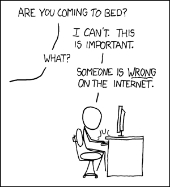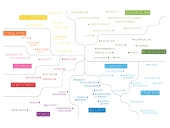

 7
7
















 8
8





 4
4




- Tim's Homestead Journal - Purchase a copy of Building a Better World in Your Backyard - Purchase 6 Decks of Permaculture Cards -
- Purchase 12x Decks of Permaculture Cards - Purchase a copy of the SKIP Book - Purchase 12x copies of Building a Better World in your Backyard












 2
2
















 3
3




- Tim's Homestead Journal - Purchase a copy of Building a Better World in Your Backyard - Purchase 6 Decks of Permaculture Cards -
- Purchase 12x Decks of Permaculture Cards - Purchase a copy of the SKIP Book - Purchase 12x copies of Building a Better World in your Backyard
 1
1




A build too cool to miss:Mike's GreenhouseA great example:Joseph's Garden
All the soil info you'll ever need:
Redhawk's excellent soil-building series

























Christopher Weeks wrote:Trace, when you say you agree with that, do you mean you think that's what everyone means when they use that word or that's what you wish they would mean? Bernie Sanders calls himself a Democratic Socialist but he seems pretty far "right" from the definition you've provided.

















 2
2




 6
6




Christopher Weeks wrote:I always think that if everyone is using a word one way, and I'm using it a different way, I'm the one using it wrong. And dictionaries are expressly descriptive, not prescriptive. I guess that's sort of the point of this thread. I've detected some communication difficulties around these terms and I hope that by airing what we think about them, I can understand better what people mean. It's not exactly building a consensus, but sort of.





 3
3




"When the whole world is running towards a cliff, he who is running in the opposite direction appears to have lost his mind." C.S. Lewis
Visit https://themaineingredient.com for organic, premium dried culinary herbs that are grown, processed, and packaged in the USA.
 3
3




Moderator, Treatment Free Beekeepers group on Facebook.
https://www.facebook.com/groups/treatmentfreebeekeepers/





 5
5




Matt McSpadden wrote:
Liberal - really just means more. He sprinkled parmesan cheese liberally onto his spaghetti.
Conservative - really just means less. She dressed more conservatively than her peers. (less flashy, less skin showing, etc).
Moderator, Treatment Free Beekeepers group on Facebook.
https://www.facebook.com/groups/treatmentfreebeekeepers/

















 1
1




Michael Cox wrote:Eg "Liberal" vrs "Authoritarian" is a social axis...












 1
1




 1
1




Michael Cox wrote:A person who considered themselves to be "Liberal" is someone who believes that they and others should be free to live their lives as they choose. It's not an economic philosophy, its a world view about how people (and society and government) should treat each other day to day.
A build too cool to miss:Mike's GreenhouseA great example:Joseph's Garden
All the soil info you'll ever need:
Redhawk's excellent soil-building series





 1
1




Moderator, Treatment Free Beekeepers group on Facebook.
https://www.facebook.com/groups/treatmentfreebeekeepers/

















 1
1




Liberalism is a political and moral philosophy based on the rights of the individual, liberty, consent of the governed, political equality, right to private property and equality before the law.[1][2] Liberals espouse various and often mutually warring views depending on their understanding of these principles but generally support private property, market economies, individual rights (including civil rights and human rights), liberal democracy, secularism, rule of law, economic and political freedom, freedom of speech, freedom of the press, freedom of assembly, and freedom of religion.[3] Liberalism is frequently cited as the dominant ideology of modern history.[4][5]: 11
 3
3




And is there some other word for people on the right wing that differentiates them from "conservatives"? Why does the left get three words and the right only one?
"We're all just walking each other home." -Ram Dass
"Be a lamp, or a lifeboat, or a ladder."-Rumi
"It's all one song!" -Neil Young












 2
2





- Tim's Homestead Journal - Purchase a copy of Building a Better World in Your Backyard - Purchase 6 Decks of Permaculture Cards -
- Purchase 12x Decks of Permaculture Cards - Purchase a copy of the SKIP Book - Purchase 12x copies of Building a Better World in your Backyard
 3
3




"When the whole world is running towards a cliff, he who is running in the opposite direction appears to have lost his mind." C.S. Lewis
Visit https://themaineingredient.com for organic, premium dried culinary herbs that are grown, processed, and packaged in the USA.












 6
6




 2
2




Christopher Weeks wrote:We're outside of my comfort zone with these terms, so I feel like I'm going a little out on a limb. But I have the sense that a Christian Nationalist among other things, wants to make America a theocracy with a state church and penalties for those who aren't sufficiently performative in their obeisance to that institution. And I also think it's closely tied to the oppression of anyone who can be tarred as outsiders. I imagine, based on current discourse, that that would start with women, foreigners, queerfolk, non-Christians, and "pinkos". But if such an institution were successful, I have no doubt it would also punish Christians of flavors that did not comport precisely enough with the theological philosophy at the center of the institution. It is a very white institution in my mind's eye, but I'm not clear what its view of black Americans is.
Christopher Weeks wrote:
Also, I was raised in a serious Libertarian household and I disagree that it is a conservative segment. My parents tended to agree with Republicans on how federal dollars should be spent (except they were more extreme than the GOP on downsizing) and tended to agree with Democrats on social issues.












 3
3




Matt McSpadden wrote:Most social issues result in people wanting the government to help, which results in spending money. How would that coincide with downsizing?




I guess you were imagining the establishment of a 'social' safety net like welfare programs and those are economic policies about which they agreed with Republicans (but more so).
"When the whole world is running towards a cliff, he who is running in the opposite direction appears to have lost his mind." C.S. Lewis
Visit https://themaineingredient.com for organic, premium dried culinary herbs that are grown, processed, and packaged in the USA.
 2
2




Matt McSpadden wrote:
I guess you were imagining the establishment of a 'social' safety net like welfare programs and those are economic policies about which they agreed with Republicans (but more so).
That is exactly right. I was thinking more of the social healthcare, social security, welfare, etc.
"We're all just walking each other home." -Ram Dass
"Be a lamp, or a lifeboat, or a ladder."-Rumi
"It's all one song!" -Neil Young

 7
7




Some places need to be wild
 6
6




One can never be too kind to oneself or others.
 2
2




Maieshe Ljin wrote: a nationalist is someone who promotes a sense of national and cultural unity, and wishes to govern as a nation state (I.e. a government guided by the traditional values of a particular ethnic group or nation)
"The genius of American farm experts is very well demonstrated here: they can take a solution and divide it neatly into two problems." -Wendell Berry
 4
4




"The genius of American farm experts is very well demonstrated here: they can take a solution and divide it neatly into two problems." -Wendell Berry












 5
5




 6
6











 8
8




I want to be 15 again …so I can ruin my life differently.

| I agree. Here's the link: http://stoves2.com |






